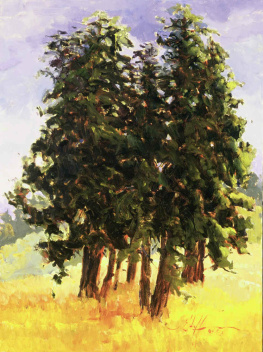Translators Preface
The story of Louis Charles, second son of Louis XVI and Marie Antoinette, is one of the most pathetic in the history of royalty, and has an added interest because of the attempts of many romancers and some historical writers to raise doubts as to his fate. The brief space of the little Dauphins life is measured by the awful period of the French Revolution and Reign of Terror. Franz Hoffmann, the writer of the original (which was published under the title of Ein Knigssohn, or, A Kings Son), follows the ordinarily accepted version that the Dauphin was separated from the King and Queen and confined in the Temple, and that after their execution he was deliberately and cruelly allowed to waste away in body and become the victim of hopeless disease, remaining thus until death ended his sufferings and the inhuman barbarity of his keepers. In the course of his narrative the author touches upon the most striking events of the Revolution, that dreadful remedy for a dreadful disease, as it has been called, and brings out in strong relief the character of the well-meaning but weak King and imperious Queen, as well as that of the brutal cobbler Simon, the Dauphins keeper; but the principal interest centres in the pathetic figure of the little prince. The historic doubts raised as to the Dauphins fate also lend interest to the tale. One of these has to do with the identity of Naundorff, who passed himself off as the Duke of Normandy, the Dauphins title, and the other with the Rev. Eleazar Williams of Green Bay, Wisconsin, missionary among the Indians. The claims put forth by friends of Williams attracted widespread attention and provoked much discussion in this country and France, half a century ago, because of the extraordinary coincidences attaching to the alleged identity. It is the generally accepted verdict of history, however, that the Dauphin was the victim of the Revolution and died in the Temple in 1795, and as such he appears in these pages. The details of his fate can never be stated with accuracy, so involved and uncertain is the tragic mystery, but Hoffmanns narrative is undoubtedly correct in its general outlines. There are almost as many different versions as there are histories of that thrilling period.
G. P. U.
Chicago , 1905
Chapter I
Sunny Days
Within the grounds of the Tuileries,that splendid palace of the King of France,at the end of a terrace overlooking the water, there was, in 1790, a small garden surrounded by a neat trellis and adjoining a pavilion occupied by the Abb Daveaux, tutor of the Dauphin, or Crown Prince, Louis Charles.
On a certain bright July morning in that year a handsome, graceful boy about five years old entered this garden. He was richly and carefully dressed, and was accompanied by a small detachment of soldiers in the uniform of the National Guard, who followed him on foot to the gate in the trellis and stationed themselves there as sentinels. The boy bowed courteously to them and said, smiling: I am sorry, gentlemen, my garden is so small I cannot have the pleasure of receiving you in it, but I will do the best I can, and quickly gathering a handful of flowers, he proceeded to distribute them among his escort with such winning sweetness that the bearded soldiers could scarcely restrain their emotion.
After busying himself for some time in this way, the boy took from a corner one of the small but handsomely finished garden tools that had evidently been specially adapted to his use, and went industriously to work removing the weeds which had sprung up among the flowers, and spading the soil of a small bed to prepare it for setting out some young plants which he had brought with him in a pretty little basket. He worked with such energy and absorption that beads of perspiration stood on his forehead, and he did not observe that his tutor, the Abb Daveaux, had entered the little garden and was watching his labors with loving interest.
That will do, my Prince, said the Abb, finally. You must not fatigue yourself too much or you will not be able to give proper attention to your lessons.
The boy immediately laid down his tool and with a bright smile greeted his tutor, who gently brushed the clustering curls from his flushed face. As he stood there, glowing with health and breathless from the exercise which had brought a bright color to his cheeks, with the frank, fearless glance of his great blue eyes shaded by dark lashes, the wide, fair brow, the fresh red lips, the dimple in his rounded chin, and the almost angelic expression of innocence on his faceit would have been hard to find a lovelier child. His figure was slender and delicate, his motions full of grace and vivacity, while in his manner and bearing there was something noticeably distinguished, combined with a confiding trustfulness that won all hearts.
Universally admired for his beauty and beloved for his nobility of mind, his tender heart, and the sweet friendliness he showed to all with whom he came in contact, this boy was Louis Charles, Dauphin of France, destined in the ordinary course of events to be the future ruler of one of the mightiest kingdoms of the world. Tenderly beloved by his parents, the unfortunate King Louis the Sixteenth and the imperious Grand Duchess Marie Antoinette; surrounded by all the pomp and splendor of a kingdom, and sheltered with loving solicitude from every shadow of evil, as yet he had known only the sunny days of happy, careless childhood; but already above him were gathering the dark clouds which were to eclipse the sunshine of his life evermore and transform the serene happiness of his parents into bitter trouble and untold misery. Alas! what a cruel fate had destiny reserved for this beautiful boy whose blue eyes looked out so bravely and trustfully upon the world! But of all this he had little foreboding as he gave himself up to the full enjoyment of his innocent happiness with all the light-hearted unconsciousness of a child.
Just see, M. Abb, how busy I have been this morning! said the boy, after he had given the usual morning greetings to his tutor. I have taken out all the weeds and planted this bed with fine asters, which will please my mother very much when they blossom. You know, M. Abb, how much she loves flowers!
I do, indeed, my Prince, answered M. Daveaux, and it is very nice and thoughtful of you to take her a nosegay every morning; but I cannot understand why you exert yourself to do all that digging, weeding, watering, and planting when a gardener would do it for you in a few moments.
The little Prince shook his head earnestly. No, no, M. Abb, he replied after a moments reflection; my father gave me this garden so that I should have the care of it. And besides, he added with a charming smile, I must make these flowers grow myself, because mamma would not like them half so well if anyone else had done it.













